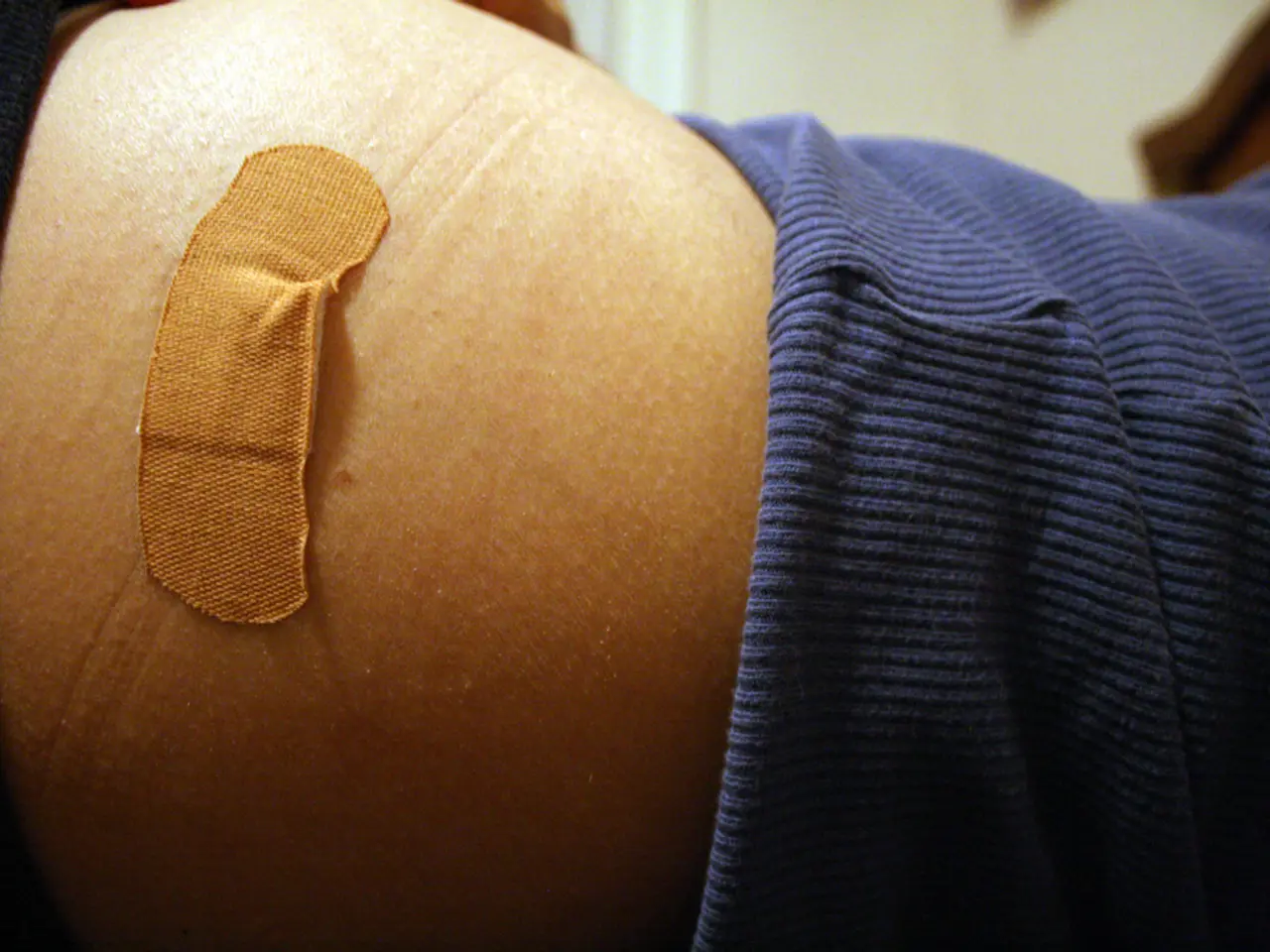Country Revealed with Minimal Aging Rates Compared to Others, Plus Rapid Aging Leaders Identified
In a groundbreaking study published in Nature Medicine, an international team of researchers has identified several sociopolitical factors that contribute to healthy aging in Denmark. The study, led by Dr. Morten Scheibye-Knudsen, an associate professor of ageing at the University of Copenhagen and the president of the Nordic Aging Society, highlights the importance of reducing educational inequalities, implementing comprehensive health and social policies, addressing social determinants, and targeting vulnerable populations with tailored interventions.
The research, which analysed over 160,000 people from 40 countries, reveals that educational inequality plays a significant role in healthy life expectancy (HLE) in Denmark. Trends show increasing disparities in HLE related to educational attainment, with those holding higher education often experiencing longer and healthier lives compared to those with lower education levels. This is linked to modifiable health risk behaviors such as smoking and alcohol consumption, which disproportionately affect lower educational groups.
At the structural level, health policies and redistributive social policies are crucial. Denmark’s robust healthcare system and educational structures support healthy aging by providing access to quality healthcare and education, which are foundational for reducing social inequalities in health outcomes. Contextual sociopolitical factors, including broader societal norms and economic environment, as well as the physical environment of communities, also play a significant role. These factors influence access to education, healthcare, and social resources that are vital to maintaining health in older adults.
Policy-level interventions aimed at reducing social inequalities, such as national health screening programs and social support initiatives targeted at vulnerable groups, are key to promoting healthy aging. For instance, targeted efforts to diminish disparities among low-education groups and older women help improve their quality of life and access to care.
The study also underscores the urgent need to address health disparities across the world. In lower-income countries, risk factors had a stronger impact than protective ones, and individuals showed significantly accelerated aging regardless of individual socioeconomic status. Conversely, Denmark had the slowest aging rate, with individuals being an average of 2.35 years younger than their chronological age.
The researchers used a measure called the 'biobehavioural age gap' clock, an artificial intelligence (AI) model, to determine average rates of aging. Those with accelerated aging were eight times more likely to find it difficult to complete day-to-day tasks and were four times more likely to experience cognitive decline. The study suggests that chronic elevated stress responses due to insecurity and healthcare disparities could be involved in the acceleration of aging.
Dr. Scheibye-Knudsen suggests investing in universal solutions such as universal education and healthcare to maintain population health. The study underscores the importance of addressing sociopolitical factors to promote healthy aging, not just individual lifestyle choices. European people have the highest levels of healthy ageing compared to other continents, with Denmark leading the way among the four continents studied (Africa, Asia, Europe, and South America). However, the study had limited representation of certain regions, especially Africa, with only Egypt and South Africa included.
In conclusion, the study provides valuable insights into the sociopolitical factors shaping healthy aging in Denmark and other northern and western European countries. By reducing educational inequalities, implementing comprehensive health and social policies, addressing social determinants, and targeting vulnerable populations with tailored interventions, we can facilitate healthier aging within these contexts. The study also emphasizes the need to address health disparities across the world, particularly in lower-income countries, to improve overall population health and wellbeing.
- The research in Nature Medicine shows that reducing educational inequalities is crucial for promoting healthy aging, as it impactfully influences healthy life expectancy in Denmark.
- The study found that broader sociopolitical factors, such as societal norms, economic environments, and physical community environments, significantly impact access to education, healthcare, and social resources necessary for healthy aging.
- The scientists used a biobehavioural age gap clock, an AI model, to analyze the average rates of aging among individuals, showing that those with accelerated aging were more likely to experience difficulties in daily tasks and cognitive decline.
- The study suggests that chronic elevated stress responses due to insecurity and healthcare disparities could contribute to the acceleration of aging.
- The researchers advocate for universal solutions like universal education and healthcare to maintain population health and wellness, stressing the importance of addressing sociopolitical factors to foster healthy aging, not only individual lifestyle choices.
- The study highlights the need to address health disparities across the world, particularly in lower-income countries, to improve overall population health and wellbeing, noting that Denmark had the slowest aging rate among the four continents studied (Africa, Asia, Europe, and South America), while certain regions, such as Africa, received limited representation.




